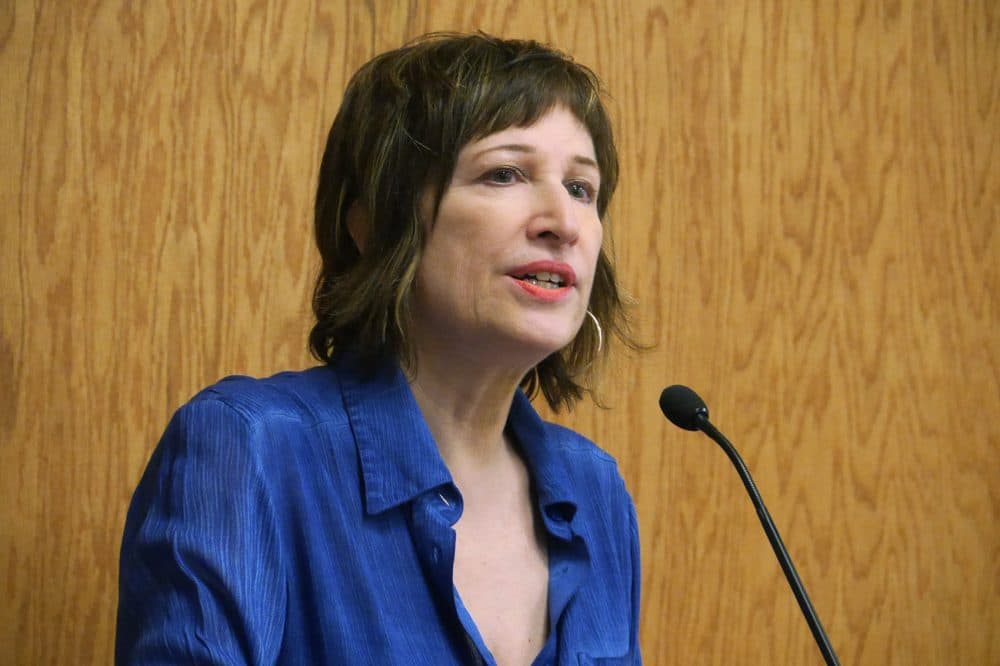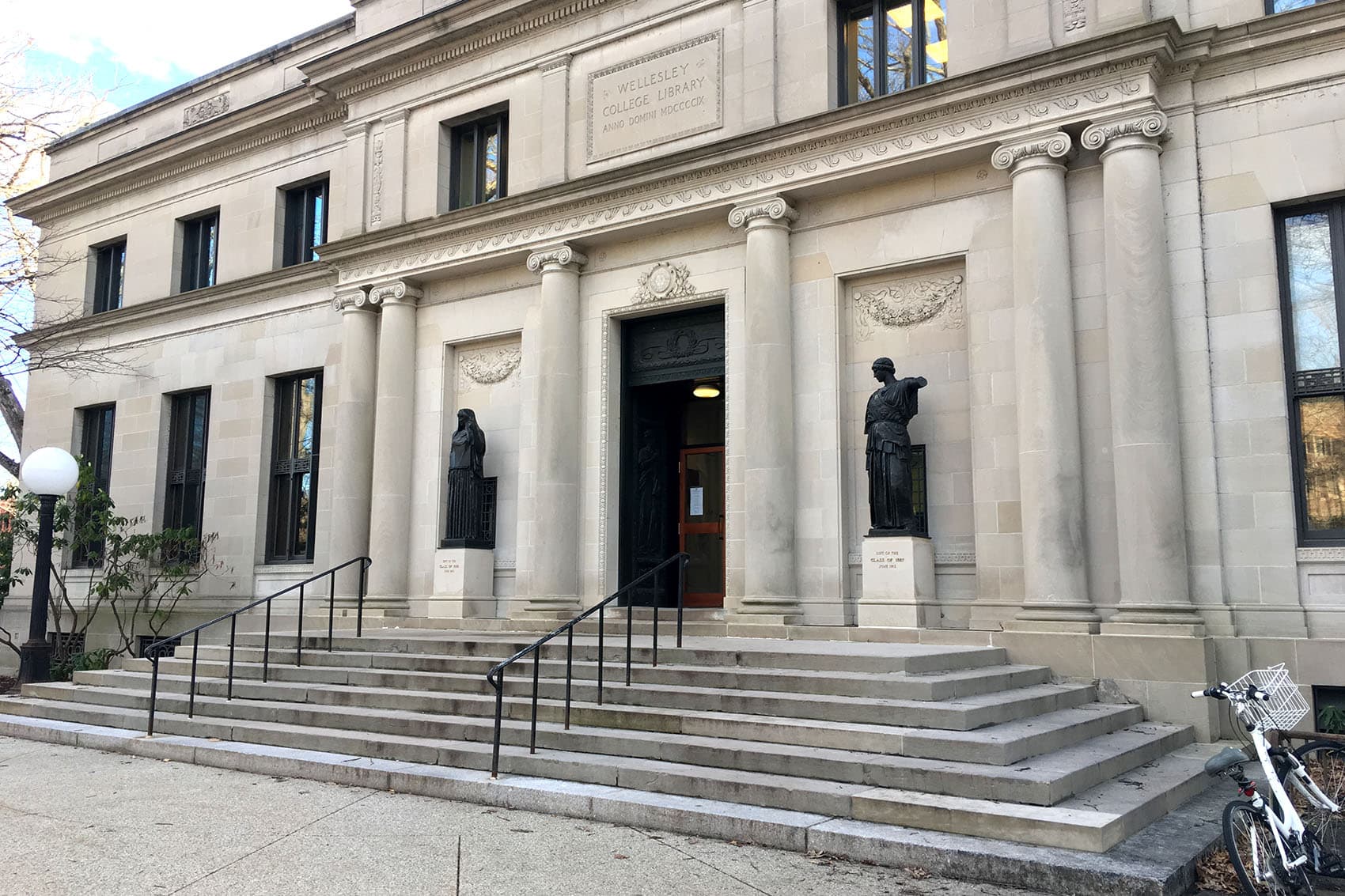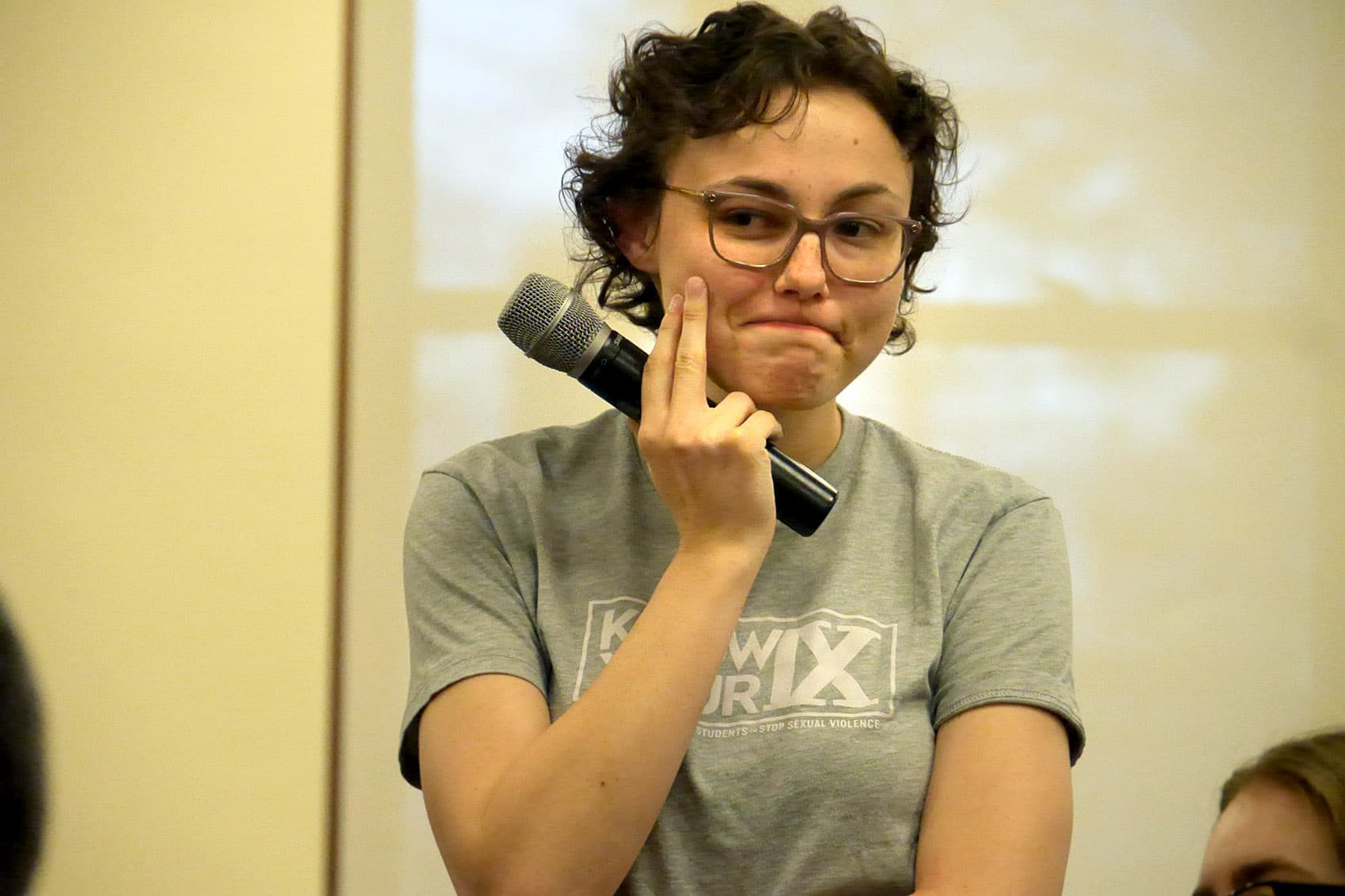Advertisement
At Wellesley, A Provocative Writer Talks Free Speech And Feminism — And Students Talk Back

A few weeks before spring break, it’s quiet on the campus of Wellesley College. But inside cafés and libraries, a heated argument is underway.
The atmosphere has been tense since Election Day, when Hillary Clinton — arguably the school's most famous alumna — was defeated by Donald Trump.
This week, a visit from the controversial feminist Laura Kipnis broke through the silence — and raised questions about who gets to say what and who has to listen.
Kipnis is a writer and teacher — but she visited Wellesley in her new role as provocateur.
Two years ago, Kipnis says, she set out to write a “no-holds-barred” essay about a climate around sex and relationships spreading at Northwestern, where she teaches, and at colleges around the country.
In "Sexual Paranoia Strikes Academe," Kipnis described new federal rules designed to combat sexual assault as "draconian.” And she wrote that today's students — especially women — suffer from a "skyrocketing" sense of their own vulnerability.
The essay has triggered student protests and a Title IX investigation into Kipnis herself.
At Wellesley Wednesday, while addressing the audience at the Freedom Project's "Censorship Awareness Week" series, Kipnis said that the hostile reaction of students and administrators serve to prove her point.
“The culture of sexual paranoia I’d originally written about is a theology on campus," Kipnis said, "to the point where ideas that challenge conventional wisdom are construed as threats.”

Even before Kipnis arrived on campus, student activists were crafting a video response — to her, and to Professor Thomas Cushman. Cushman directs the Freedom Project, which brought Kipnis to campus. Cushman describes himself as a “natural contrarian" and aims to promote free expression at a time when, he thinks, it’s badly needed.
"The left, in academia, has become increasingly more and more closed to anybody who within their own ranks might dissent from the various orthodoxies," Cushman said. "The students are not served by that."
Cushman pointed to Middlebury College, where a protest of sociologist Charles Murray turned chaotic this week. Murray had to flee the stage, and one of his hosts was hurt in the scuffle.
“That kind of thing is not what a civil public sphere looks like," Cushman said. "That was a kind of quasi-totalitarian, typical outburst of complete intolerance."
Advertisement
Some of Cushman’s colleagues aren't as concerned.
Wellesley political science professor Laura Grattan doesn’t condone violence. But she says even unruly resistance to a speaker like Murray — who has written about racial differences in IQ and their possible roots in human genetics — makes sense to her.
"I think that the protests that are so loud and deafening and raucous as to try to stop a white-supremacist speaker before they start are not only the right of students," Grattan says, "but also their effort to say this is the kind of campus and community that we want to have."
And because campus community belongs to students, they should have a say in deciding who takes the stage.
She says the Freedom Project's use of the words "free speech" muddies the water. The young women she teaches aren't trying to shelter themselves from criticism, but rather raising their own voices -- which have historically been ignored.
"To say, 'Well, this is a matter of free speech,' or 'All views need to be heard,' ignores the fact that some views reinforce institutional and culturally dominant norms and others are still just trying to be heard," Grattan said.
She added that the Freedom Project recently received support from the billionaire Charles Koch, a famous supporter of conservative politicians and causes.
Tom Cushman declined to comment on the Koch gift, other than to say it was “generous” and will support free expression of all kinds at Wellesley.
Inside the library lecture hall Wednesday, Kipnis faced more than an hour of tough back-and-forth questions from young women about consent, the law and their rights in the case of sexual assault.
Wellesley junior Emily Boyk told Kipnis was one of those asking questions. In a shirt that read "Know Your IX" — as in Title IX — she said that she didn't believe that her generation of activists has contributed to the paranoia that Kipnis describes.
After the event was over, Boyk said she wasn’t satisfied with Kipnis’s answers — but she was glad she was on hand to hear them. She warned against misinterpreting young women’s demands for consent and safe spaces as a sign of weakness.

“It’s not because we are babies, and can’t take care of ourselves," Boyk said, "as much as it is because we know what we want and are taking care of ourselves by making these steps.”
Tom Cushman said the fact that students like Boyk came and listened was proof that he’s in the right place.
“When I look at Middlebury, I run over to Wellesley and I kiss the ground. Because we’ve had nothing like that happen. Wellesley students, they’ve have proven to be very intense, very outspoken, but also extremely civil to our speakers. That’s what a public sphere is supposed to look like," Cushman said.
When the event was over, students applauded and milled around, discussing and arguing about Kipnis' speech. Cushman says sparking those tough conversations between very different people is worth the trouble — especially, he adds, since it’s not going so well in America right now.
Correction: An earlier version of this post identified Emily Boyk as a Wellesley senior. She is a junior.
This article was originally published on March 10, 2017.
This segment aired on March 10, 2017.
